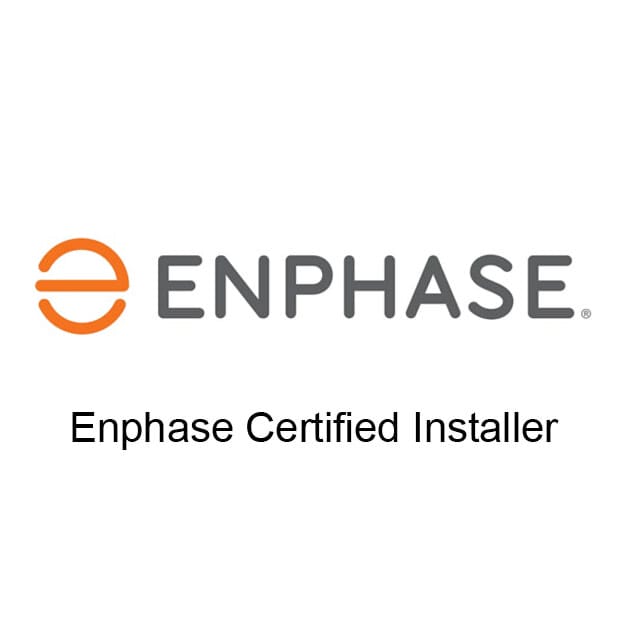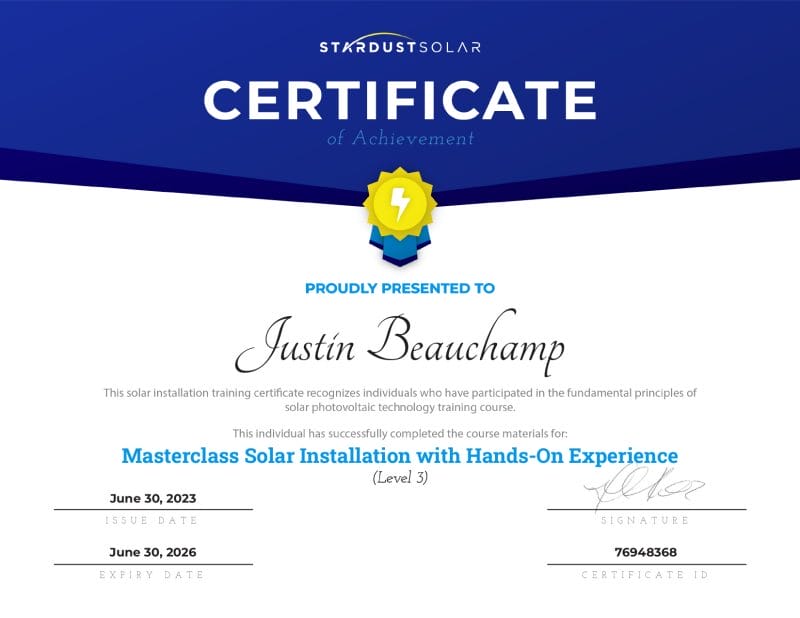The residential solar energy sector exhibits huge promise for residents eyeing for economical power alternatives. As environmental awareness and solar technology continue to advance, dependable solar electricians become an ever-greater necessity.
Canada has made significant strides in environmental sustainability with its solar energy strategy. The project to foster the adoption of renewable energy has experienced substantial investment from the Canadian government, commercial enterprises, and industries.
When venturing into residential solar, the role of a proficient solar electrician is paramount.
These professional “social electrician near me” possess the expertise to install, maintain, and repair solar systems, ensuring optimal performance and longevity.
What advantages does solar energy offer?
Renewable and Sustainable |
Solar energy is classified as a renewable resource due to its continuous replenishment by the sun. Its energy can be harnessed for as long as the sun continues to exist, rendering it an almost infinite power source. |
Environmentally Friendly |
Solar power generation contributes to the prevention of climate change and decreased dependence on fossil fuels by not emitting greenhouse gases or air pollutants. |
Reduced Electricity Bills |
Canadians can decrease their dependence on grid power. This may reduce electricity costs, particularly in regions with adequate sunlight. |
Low Operating Costs |
Solar panels require little to no maintenance. They demand minimum maintenance in contrast with traditional power-generating technologies. |
Energy Independence |
Minimizing reliance on imported fuels and easing the consequences of energy price fluctuation. |
How much sun is needed to support a solar power system?
Solar panels work best in locations with plenty of sunlight year-round. A solar power system can work efficiently if you have 4-5 hours of sunlight daily. However, panel efficiency and weather conditions can affect this.
- Position out south. Additionally acceptable is a deviation of up to 30 degrees from the South.
- Absence of shading barriers
- Obtain sunlight between 9:00 a.m. and 3:00 p.m.
What is net metering?
Net metering is the utility crediting system for solar-generated electricity from residential solar panels. Using net metering, you pay only for the excess electricity you consume compared to the amount your solar panels generate. Beforehand, familiarize yourself with the varying net metering policies that exist in regions.
When will solar energy achieve grid parity?
Solar power is equal to or cheaper than grid power. Standard solar systems endure at least 25 years and frequently much longer. If you divide the solar system’s entire cost by the kilowatt-hours it will produce over the next 25 years, it will be cheaper than grid power.
How does solar influence the value of my property?
Research has indicated that the market value of homes featuring solar energy systems is higher than that of homes missing. However, your property value will only increase if you own your solar panel system instead of leasing it.
What differentiates secured solar loans from unsecured solar loans?
| Secured Solar Loans | Unsecured Solar Loans |
| Demand that you guarantee a collateral asset, typically your home, in exchange for the funds you borrow. | While this does not require assets as collateral, the interest rates associated with them are higher to offset the lender’s increased risk. |
What are the different types of power inverters?
- String/Centralized Inverters: These are commonly used in traditional solar panel systems. They convert the DC (direct current) electricity generated by a string of solar panels into AC (alternating current) electricity. In this setup, multiple solar panels are connected in a series (or string), and their combined DC power is fed into a single centralized inverter.
- Microinverters: Installed on each individual solar panel. They convert the DC power generated by the panel directly into AC power at the panel itself. This setup allows each panel to operate independently, maximizing the energy output of the entire system.
- Power Optimizers: These are similar to microinverters in that they are installed at the panel level. However, unlike microinverters, they do not directly convert DC to AC power. Instead, they optimize the DC power output of each panel and then send the optimized DC power to a centralized inverter for conversion to AC power.
How is shared solar different from rooftop solar?
Both rooftop solar and shared solar contribute to renewable energy generation but offer different solutions to access solar power.
| Shared Solar vs Rooftop Solar | |
| Key Differences | Details |
| Ownership | Rooftop solar energy systems entail property owners’ direct ownership and usage of solar panels on their rooftops. On the contrary, shared solar enables numerous participants to derive advantages from an off-site solar energy system through subscription-based access or shared ownership. |
| Location | Rooftop solar installations are strategically located on top of individual structures, in contrast to shared solar energy systems, which are commonly set up in a central location to cater to numerous subscribers who may lack access to appropriate rooftop space for installing solar panels. |
| Accessibility | Rooftop solar energy is exclusive to owners or occupants with rooftops suitable for solar installations. In contrast, shared solar energy enables more individuals to access solar energy, including renters, those residing in multifamily buildings, or those with shaded roofs. |
What will be the method of installation for the solar panels?
There are four distinct methods of mounting employed in solar systems.
-
Roof-Mounted Systems
These solar panel installations are the most frequent. Flush, slanted, or ballasted racks mount panels directly to a building’s roof. They are used in residential and commercial structures with pitched or flat roofs.
-
Ground-Mounted Systems
These systems entail the installation of solar panels on the ground via racks, poles, or frameworks. Ground-mounted systems are suitable in utility-scale solar farms, and other locations where rooftop installation is impractical or larger solar arrays are required.
-
Pole-Mounted Systems
Solar panels are commonly affixed to poles or posts in a vertical or slanted form. These systems are implemented in off-grid settings, remote locations, situations involving limited space, or shading.
-
Tracking Systems
For solar panels to track the sun’s path throughout the day, they are mounted on mechanized mounts as part of tracking systems. These systems can track either the east-west or up-down movements of the sun, or they can have a single-axis design that follows the sun’s east-west path. Although more complex and costly than fixed-mount systems, tracking systems can increase energy production.
What happens if a solar panel is struck by lightning?
Purchasing a solar system from a qualified installer ensures that it is specifically engineered to endure the impact of lightning. If a solar panel is struck by lightning, your solar provider is responsible for all subsequent repair tasks.
What should I do if I require a roof replacement?
Solar panels can safeguard your roof and extend its lifespan. That is very positive information, as replacing a roof after installing solar panels is challenging and costly. Therefore, it is advisable to prioritize any necessary roof repairs before proceeding with the installation of the panels. Your solar installer will need to assess the structural integrity of your roof to ascertain its suitability for accommodating solar panels.
How do I estimate the cost of solar panels?
As of December 2023, the average price of solar panels in Vancouver is $2.77 per watt, resulting in a total cost of $11,633 for a standard 6000-watt (6 kW) solar system after applying the currently available 30% federal solar tax credit.
| System size | Avg cost per watt | Avg system cost (after tax credit) |
| 4kW | $3.02 | $8,451 |
| 5kW | $2.91 | $10,173 |
| 6kW | $2.77 | $11,633 |
| 7kW | $2.75 | $13,454 |
| 8kW | $2.77 | $15,521 |
| 9kW | $2.67 | $16,839 |
| 10kW | $2.65 | $18,542 |
Do solar incentives currently exist in Canada?
Numerous incentives are provided in Canada to promote the installation and utilization of solar energy
Federal Tax Credits |
The federal government offers tax benefits to residential and commercial properties that invest in renewable energy sources such as solar power generation. |
Provincial Rebates |
Several Canadian provinces offer rebates or financial incentives to homeowners and companies that install solar panels.
|
Net Metering |
Net metering helps reduce the financial burden associated with solar panels by enabling homeowners and businesses to sell any surplus energy back to the utility. |
Green Bonds |
Green Bonds are issued by the federal government to Canadian citizens who wish to invest in pure environment-supporting projects, such as renewable energy.. |
Municipal Incentives |
Certain municipalities in Canada provide property tax rebates and low-interest financing as incentives for businesses and homeowners to install solar panels. |
Go Solar Today
Solar panels save you money and make your home more attractive to potential buyers. Getting an experienced solar installation company ensures a seamless and efficient installation process, handling everything from design to setup, making the transition to solar power hassle-free for you.








